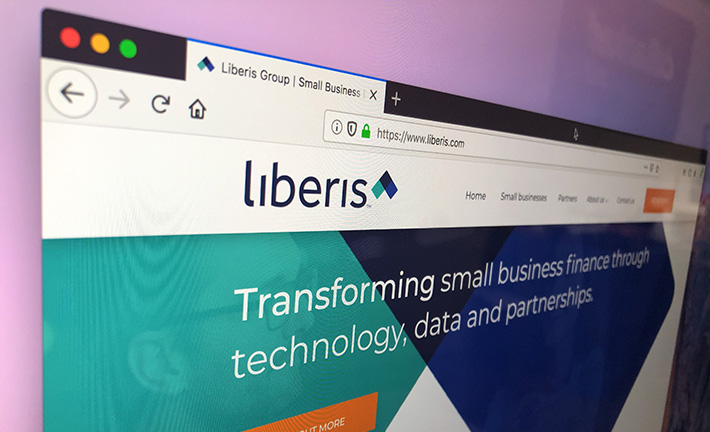Maryland Legislative Committee to Meet On Merchant Cash Advance Prohibition (Rescheduled to Wednesday)
March 2, 2020Legislators in the Maryland State House will meet today on Wednesday at 1pm EST to discuss HB-1478, a bill to make merchant cash advances illegal in the state. A similar meeting is taking place tomorrow in the State Senate. The House meeting was originally scheduled for Monday but was postponed.
All four of the House bill’s sponsors are republicans. Today’s committee is expected to discuss the potential small business effect of prohibition. A legislative note that circulated before hand cautions that:
Any small businesses that utilize merchant cash advances, as defined by the bill, may be impacted, as the bill no longer allows such transactions. The Office of Commissioner of Financial Regulation advises that small businesses are likely to engage in merchant cash advance transactions, as they accept credit card payments and those receivables are their greatest source of liquidity. As such, prohibiting the use of such transactions may remove a source of financing that has traditionally been available to small businesses in the State. Additionally, prohibiting the use of merchant cash advance transactions may also affect small business lenders in the State that engage in these types of activities.
The bill, as written, would outlaw credit and debit card split transactions if it passed.
This bill prohibits a buyer from arranging, facilitating, or consummating a “merchant cash
advance transaction” with a seller in the State. The bill defines “merchant cash advance
transaction” as an arrangement between a buyer and a seller in which the buyer agrees to
purchase an agreed-on percentage of future credit or debit card revenues that are due to a
seller for a predetermined purchase price.
Maryland State Legislators Want to Enact “Prohibition” on Merchant Cash Advances
February 21, 2020A Maryland State Senator and 4 State Delegates are calling for a prohibition on merchant cash advances through a bill introduced this month that aims to make it illegal to arrange, facilitate or consummate a merchant cash advance with a merchant in the state.
Maryland State Senator and 4 State Delegates are calling for a prohibition on merchant cash advances through a bill introduced this month that aims to make it illegal to arrange, facilitate or consummate a merchant cash advance with a merchant in the state.
Maryland State Senate Bill 913 and House Bill 1478, literally headlined as Merchant Cash Advance Prohibition, defines a merchant cash advance as:
AN ARRANGEMENT BETWEEN A BUYER AND A SELLER IN WHICH THE BUYER AGREES TO PURCHASE AN AGREED–ON PERCENTAGE OF FUTURE CREDIT CARD REVENUES OR DEBIT CARD REVENUES THAT ARE DUE TO A SELLER FOR A PREDETERMINED PURCHASE PRICE
If all went to plan, the law would go into effect as early as October 1st of this year. Support at this early stage is bipartisan, with the Senate Bill sponsored by a Democrat and the House bill sponsored by 4 republicans. Hearings on the matter are being held on March 2nd and 3rd.
Patreon Adds MCA-like Product With Patreon Capital
February 20, 2020 Patreon, the membership platform that provides payment and subscription services for creators, will now start funding those artists that are on its site through Patreon Capital. Said to be modeled after Shopify Capital, the service will be available to certain creators initially, with Patreon reaching out directly to them to offer merchant cash advances.
Patreon, the membership platform that provides payment and subscription services for creators, will now start funding those artists that are on its site through Patreon Capital. Said to be modeled after Shopify Capital, the service will be available to certain creators initially, with Patreon reaching out directly to them to offer merchant cash advances.
The move comes after CEO Jack Conte had been quoted in January saying that “The reality is Patreon needs to build new businesses and new services and new revenue lines in order to build a sustainable business.”
It seems like this new service is part of a trend that has overtaken tech companies recently, best exemplified by the Apple Card, wherein established players, worried about longevity, are moving further into financial services, hoping to get long-lasting hooks into their customers.
Historically, Patreon has made money by taking a 5% cut from the subscription payments made to artists on its platform, with a further 5% going towards covering transaction fees, and the remaining 90% being left for the artist, who retains complete ownership of their work. It currently has over 100,000 creators on its site and over three million active monthly users. Contributions begin at $1, with content being unlocked in exchange for payment. Thus far, Patreon has paid out over $1 billion.
It has been reported that about a dozen deals have been made between creators and Patreon Capital so far. Hot Pod News ran a story featuring one such case, in which Multitude, a Brooklyn-based podcast studio, disclosed that it took funding of $75,000 over two years in order to pay the SAG-AFTRA rates of the actors it wanted to employ for a new audio sitcom titled Next Stop.
“We were running into this problem where we have a ton of great ideas, but because we’re a small business, we constantly have to decide between putting money towards paying our people and getting more equipment versus saving it up for a bigger project,” Multitude’s CEO, Amanda McLoughlin, told Hot Pod.
The premium attached to the financing was not revealed, however Multitude did note that the revenues of one of the studio’s other shows, Join the Party, would be taken as collateral if Next Stop is not profitable enough to pay the premium after two years.
“This arrangement is directly tied to the fact that we have successful podcasts making money on Patreon, and that we’ve already invested in the Patreon system to pay this stuff back,” comment Eric Silver, Multitude’s Head of Creative, underlining how Patreon Capital is linked with the analytics of Patreon’s base service. Much like how Amazon uses sales metrics and user data to gauge which retailers to lend to on its own marketplace, Patreon appears to be making use of seven years of data on its creators to determine who is best positioned to receive funding.
“Patreon has access to all the data about a creator’s earnings history, what they offer as benefits, how much they engage with their patrons … everything needed to forecast their earnings and retention, without a creator even needing to submit an application.” Patreon VP of Finance Carlos Cabrero stated. “This would be essentially impossible for a bank to replicate.”
We’ve Acquired All Of DailyFunder
February 6, 2020 deBanked’s parent company has acquired 100% of DailyFunder. I was a co-founder of the online forum that launched in 2012 and had remained a partner in it until recently when I had the opportunity to acquire the remainder of the company’s shares.
deBanked’s parent company has acquired 100% of DailyFunder. I was a co-founder of the online forum that launched in 2012 and had remained a partner in it until recently when I had the opportunity to acquire the remainder of the company’s shares.
What does this mean for DailyFunder?
DailyFunder will remain an independent entity and website, and it will continue to keep its trademark name. Its concept, a message board for business finance professionals, will fit nicely into our ecosystem. Our full ownership of DailyFunder will allow us to provide the site with updates, fixes, and improved moderation. Some changes to the site may be implemented over the next several weeks and months.
More than 16,000 threads and 129,000 posts have been published on the forum since inception, a testament to the value that such a site provides to the unique community it fosters. DailyFunder has nearly 10,000 registered members. Discussion on the site originally centered around merchant cash advance but has since evolved to all types of commercial finance.
If you’re one of the men and women who fund daily, well then I hope to see you on the DailyFunder!
If you have a technical question or moderation issue, please email: webmaster@dailyfunder.com. If you have an advertising question, please email me at: sean@dailyfunder.com. Please bear with us as our team gets acclimated to the new change.
CAN Capital Brings On Edward Dietz as Chief Compliance Officer & General Counsel
February 5, 2020 CAN Capital is continuing its executive hiring spree into 2020 with the news that it has brought on Edward Dietz as its latest Chief Compliance Officer and General Counsel. After providing legal expertise to Marlin Business Services Corporation for nine years and working as an associate for two law firms in Wisconsin and Pennsylvania previous to this, Dietz will oversee CAN’s compliance with all federal and state lending, banking, and securities laws.
CAN Capital is continuing its executive hiring spree into 2020 with the news that it has brought on Edward Dietz as its latest Chief Compliance Officer and General Counsel. After providing legal expertise to Marlin Business Services Corporation for nine years and working as an associate for two law firms in Wisconsin and Pennsylvania previous to this, Dietz will oversee CAN’s compliance with all federal and state lending, banking, and securities laws.
“Having worked with Ed and knowing his skill set and the many intangibles that he brings to CAN, I feel fortunate that he’s leading our legal and compliance efforts,” noted CEO Edward Siciliano in a statement. “Ed’s just what we needed as we position CAN for growth and to lead a new era of small business lending.”
Having graduated from the University of Michigan Law School in 2004, Dietz has nearly two decades of legal experience.
Speaking on the news, Dietz said that he “could not be more excited to join a company and a team that believes so deeply that its people and its culture are the keys to harnessing the company’s growth potential.”
Liberis Secures $42 Million in Funding, Plans American Expansion
February 3, 2020 Liberis, the London-based small business finance provider, secured £32 million ($42 million) in capital late last month following a round of equity fundraising. The firm, which has funded businesses through cash advances since 2007, has now raised a total of over £150 million ($197 million) via debt and equity.
Liberis, the London-based small business finance provider, secured £32 million ($42 million) in capital late last month following a round of equity fundraising. The firm, which has funded businesses through cash advances since 2007, has now raised a total of over £150 million ($197 million) via debt and equity.
Having already entered Nordic markets, Liberis looks to use this funding to further expand into Europe as well as make their mark in America. Speaking to deBanked, Liberis CEO Rob Straathof explained that the company would be working with its North American partner, Worldpay, to spread itself across all 50 states. Beyond Worldpay, Liberis is planning to create more partnerships with merchant acquirers, those payment platforms which serve merchants, or “SME champions,” as Straathof calls them.
Liberis will not be using brokers to provide cash advances to business owners in the States, the reason being that the company prefers to work with its affiliated partners. “We purely rely on our partners and integrating with our partners,” explained Straathof. “In the UK we still do brokers, but that’s kind of a legacy. It works very well for us and we have a great relationship with brokers. It’s a good channel for us, but we have no intention at this point to launch that in the US.”
The company will also use the funding to increase its staff by 30% in 2020, hiring around 50 people to bolster its 165-person workforce across their four offices in London, Dublin, Stockholm, and Denver.
Appellate Court Affirms Decision in Merchant Funding Services, LLC v Micromanos Corporation etc.
February 1, 2020On January 29th, 2020 the Appellate Division, 2nd Department, of the Supreme Court of New York, upheld the original decision issued in Merchant Funding Services, LLC v Micromanos, etc. et al.. The case concerns a Confession of Judgment (COJ) filed following Micromanos’ default on a merchant cash advance contract. The defendants sought to vacate the COJ on the basis that the underlying agreement was allegedly a criminally usurious loan but the original judge ruled in favor of the plaintiffs.
The case was so notable that deBanked published a summary of the decision three years ago. Of particular interest is that the defendants not only lost but were accused by the judge of attempting to mislead the Court. Despite that, the defendants appealed.
The defendants have now lost again. The underlying case law they had relied on to support their arguments, Volunteer Pharmacy, was overturned the same day this decision was issued, leaving little room to wonder why the Appellate Division ruled accordingly.
One Of The Most Devastating Court Decisions Against Merchant Cash Advances Has Been Overturned
January 29, 2020 Merchant Cash Advances have sat on comfortable legal footing in New York ever since an appellate court ruled in favor of Pearl Beta Funding, LLC against Champion Auto Sales, LLC in 2018, but even so, it hasn’t stopped lawyers from trying to invalidate merchant cash advance (MCA) contracts on behalf of aggrieved customers.
Merchant Cash Advances have sat on comfortable legal footing in New York ever since an appellate court ruled in favor of Pearl Beta Funding, LLC against Champion Auto Sales, LLC in 2018, but even so, it hasn’t stopped lawyers from trying to invalidate merchant cash advance (MCA) contracts on behalf of aggrieved customers.
That’s because an MCA provided by New York-based Merchant Funding Services LLC to a business known as Volunteer Pharmacy in 2016 was ruled by New York Supreme Court Judge David F Everett to be so “criminally usurious on its face” that the normal process required to vacate a Confession of Judgment could simply be bypassed without even having to evaluate the merits of each side’s arguments and the matter automatically won in favor of Volunteer Pharmacy. The judge’s written decision, which voided the MCA contract ab initio, was replete with a scathing opinion of MFS’s business model.
The decision quietly stunned the merchant cash advance industry. MFS understandably appealed.
Dozens of lawsuits against MCA companies in the ensuing years went on to cite Judge Everett’s decision in Volunteer Pharmacy with limited success. And while the industry sat around to find out what would happen in that case, Pearl Beta Funding, a rival to Merchant Funding Services, won an appeal of its own, the landmark usury case in March 2018 that seemingly solidified once and for all the commonly held understanding that such MCA agreements were not usurious.
Despite this, the uncertainty of Volunteer Pharmacy still lingered in the background, that is until now.
On January 29th, 2020 the Appellate Division, 2nd Department, of the Supreme Court of New York, overturned Judge Everett’s decision and ruled in favor of Merchant Funding Services. The panel of judges said they need not even weigh a lot of Everett’s contentions because he was wrong on the underlying procedural issue, that a judgment by confession could be vacated in such an instance without having to go through the normal legal process.
The ruling ultimately provides clarity on the process that determines how a judgment by confession can be vacated. One major impact is that lawyers seeking to invalidate merchant cash advance agreements will no longer have Volunteer Pharmacy as a crutch to rely on.






























